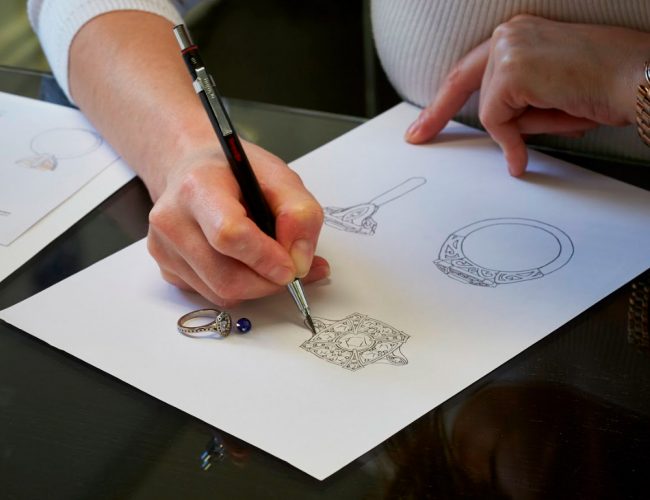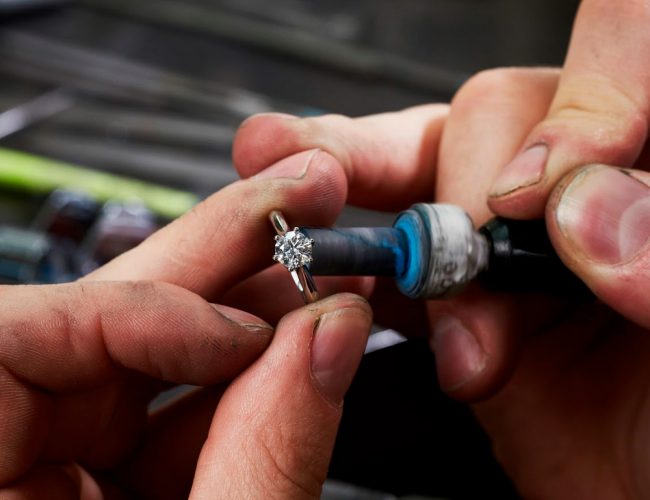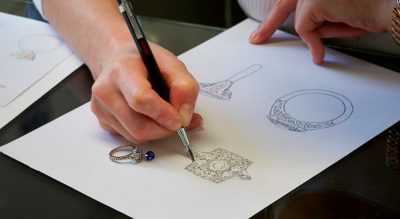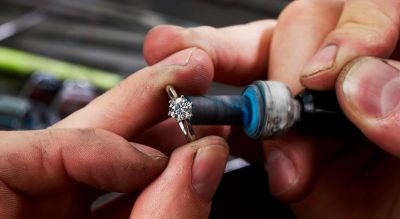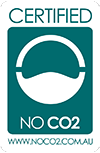About Larsen Jewellery:
At Larsen Jewellery, we specialise in custom made fine jewellery, where you experience our personal service and exquisite workmanship, dealing directly with one of our friendly jewellers. You can choose from our wide range of beautiful designs or create your own individual design, all backed by a lifetime guarantee. We also sell loose diamonds and coloured gemstones at competitive workshop prices. We are also the only jeweller in Australia where you can share the unique and romantic experience of making each other’s wedding rings under the guidance of your own personal jeweller!

High ethical standards are at the heart of everything we do, from ensuring that our diamonds are conflict-free, to sourcing our materials, such as metals and diamonds in the most environmentally and socially responsible way in order to have our jewellery reflect our core values. We are also the proud supporters of a selection of wonderful charities and foundations.
As part of our mission to make Larsen Jewellery a leader in the sustainable jewellery industry, we are now proudly a licenced producer of Fairtrade certified gold wedding rings; handcrafted using Fairtrade gold which has been mined by artisanal and small-scale mining organisations meeting the Fairtrade gold standards.
We are located in Sydney’s Strand Arcade and Melbourne’s GPO. Our Melbourne store is located at Level 2/350 Bourke St, Melbourne VIC 3000.
www.larsenjewellery.com.au
Environmental Action:
Larsen Jewellery achieved carbon neutral certification on the 22/10/2019. To achieve this status and become carbon neutral Larsen Jewellery undertook the following process:
- Commissioned a NoCO2 audit from CRI to measure their carbon footprint for the 2018 financial year (FY2018). CRI’s NoCO2 audit follows the standards outlined by the World Business Council for Sustainable Development’s Greenhouse Gas Protocol Corporate Accounting and Reporting Standard (1), in addition to the international standard ISO 14064.1 (2).
- Have committed to offset their unavoidable emissions through the purchase of units in approved projects under the Verified Carbon Standard (VCS) and Gold Standard, and
- Committed to ongoing annual auditing of their emissions.
What does NoCO2 mean?
By meeting the requirements of the NoCO2 Program, Larsen Jewellery is now a carbon neutral business. In addition, all products and services provided by Larsen Jewellery are carbon neutral.
What Carbon Credit Projects does Larsen Jewellery purchase units from?
India Biomass:
Why India?
Environmental problems in India are growing rapidly. The increasing economic development and a rapidly growing population that has taken the country from 300 million people in 1947 to more than one billion people today is putting a strain on the environment, infrastructure, and the country’s natural resources. India’s air pollution is exacerbated by its heavy reliance on coal for power generation. While India is fortunate to have abundant reserves of coal to power economic development, the burning of this resource, especially given the high ash content of India’s coal, has come at a cost in terms of public health risk and environmental degradation. Reliance on coal as the major energy source has led to a nine-fold jump in carbon emissions over the past forty years.
The Project:
Biomass projects are implemented in small or large industrial plants. Their aim is to utilize agricultural waste or other non-renewable biomass residues as fuel to generate power and to lower the plants’ dependence on the local grid for electricity. Before the implementation of the project, the electricity needs of such plants were met by power from a coal dominated grid. To meet the rising energy demands in production, new efficient biomass boilers are installed together with a steam turbine, producing both steam and electricity. The new boilers are fuelled with locally available agricultural waste instead of traditional, emission intensive coal. Before the start of the project, these agricultural residues were not used.
China Wind & China Solar:
Why China?
China has witnessed rapidly increasing demand for energy as a by-product of meteoric growth in recent history. This has resulted in a significant increase in the burning of fossil fuels to meet the developing demand for energy. China has traditionally been reliant on the burning of coal to meet its energy needs given its relative abundance and cost advantage. A dependence on coal has contributed to China becoming the world’s largest emitter of greenhouse gases as well as the discharge of dangerous gases and particulate matter that degrade air quality and have generated alarming health concerns. A study published by the World Health Organisation found chronic respiratory illness to be the second leading cause of death in China with the elderly and children being most vulnerable.
The Projects:
The China Wind & Solar Projects provides a renewable, clean energy source for power generation. They partially displace electricity currently generated from grid connected conventional fossil fuel based thermal power plants, thereby reducing overall emissions. Furthermore, by reducing harmful pollutants in the atmosphere, the projects also provide public health and local environmental benefits.
Cookstoves in Developing Nations:
Why Cookstoves in Developing Nations:
Nearly three billion people around the world burn wood, charcoal, animal dung, or coal in open fires or in inefficient stoves and without a chimney for daily cooking and heating. This reliance on inefficient cookstoves and fuels leads to a wide variety of environmental problems including deforestation, air pollution and climate change. Daily exposure to toxic smoke from traditional cooking practices is one of the world’s biggest, but least well-known killers.
Penetrating deep into the lungs of its victims, this acrid smoke causes a range of deadly chronic and acute health effects such as pneumonia, lung cancer, chronic obstructive pulmonary disease, and heart disease, as well as low birth-weights in children born to mothers whose pregnancies are spent breathing toxic fumes from traditional cookstoves. Women and children must risk their safety, health, and sometimes their lives, to search for and collect firewood in order to cook food over smoky, polluting open fires.
The Projects:
The Cookstoves in Developing Nations project disseminates efficient wood and charcoal cookstoves throughout to reduce dependency on traditional biomass fuels. By replacing traditional cookstoves with fuel efficient stoves in households and restaurants, reduces greenhouse gas emissions, relieves pressure on local forests and assists in reducing the incidence of chronic respiratory disease, improving livelihoods in poor communities.
Cookstoves in Developing Nations sources Verified Carbon Standard and Gold Standard carbon credits from countries including Peru, Uganda, Cambodia and China.
